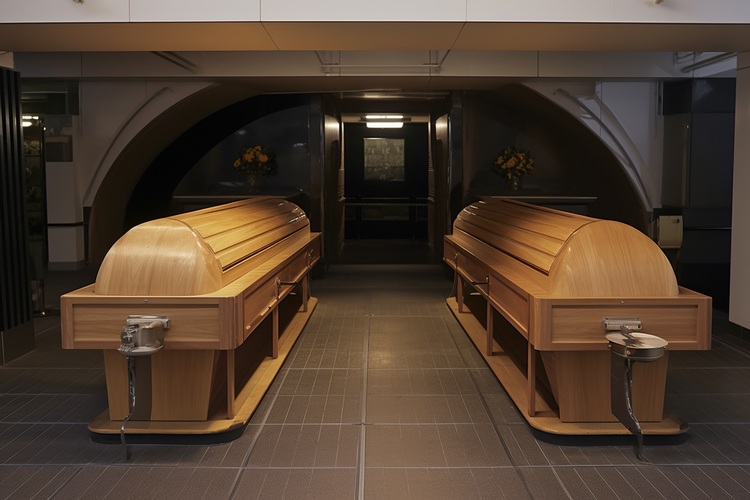How Much Does A Funeral Cost? Explore Important Details
Planning a funeral involves navigating numerous expenses during an already difficult time. Understanding the various costs associated with funeral services can help families make informed decisions while honoring their loved ones. From traditional burials to cremation options, funeral expenses can vary significantly based on multiple factors including location, service type, and provider selection.

Funerals represent one of life’s significant financial expenditures, often occurring during emotionally challenging times when making financial decisions is particularly difficult. The cost of a funeral can vary dramatically depending on numerous factors, including the type of service, geographic location, and specific elements selected. Understanding these expenses in advance can help families plan appropriately and make choices that honor their loved ones while respecting financial realities.
Understanding Traditional Funeral Costs
A traditional funeral with burial typically includes several distinct expense categories. The basic professional services fee, covering funeral planning, permits, and death certificates, generally ranges from $2,000 to $2,500. The preparation of the deceased (embalming, dressing, and cosmetic work) can add $500-$1,000. A casket represents one of the largest expenses, with prices ranging from $1,000 for simple designs to $10,000 or more for premium materials. The funeral ceremony itself may cost $500-$1,000, while cemetery expenses including the plot ($1,000-$4,000), grave opening and closing ($1,000-$1,500), and headstone ($1,000-$3,000) significantly increase the total. When combined, these expenses typically result in traditional funeral costs between $7,000 and $12,000, though premium options can exceed $25,000.
Cremation Costs Compared to Traditional Burial
Cremation has grown increasingly popular, partly due to its generally lower cost compared to traditional burial. A direct cremation—which includes only the essential services without a viewing or ceremony—typically costs between $1,000 and $3,000. Adding memorial services increases this amount, with a full-service cremation (including viewing, ceremony, and urn) ranging from $3,000 to $7,000. By comparison, this remains substantially less than traditional burial expenses. The elimination of costs for caskets, burial plots, and grave markers contributes to these savings. Families choosing cremation still have options for memorialization, including columbarium niches ($1,000-$3,000), scattering gardens ($200-$500), or keeping remains in an urn ($50-$2,000), all of which remain less expensive than traditional burial options.
Funeral Home Services Options
Funeral homes offer various service packages designed to accommodate different preferences and budgets. The comprehensive traditional funeral package includes all services from body preparation to the funeral ceremony and typically ranges from $5,000 to $10,000 excluding cemetery costs. Modified service packages might include a memorial service without the body present, generally costing $3,500 to $6,000. Direct burial or cremation without ceremonies represents the most economical option at $1,000 to $3,000. Most funeral homes also offer à la carte services, allowing families to select only what they need—transportation services ($300-$500), viewing facilities ($500-$700), or memorial printing ($100-$500). The Federal Trade Commission’s Funeral Rule requires funeral homes to provide itemized price lists, enabling consumers to select only desired services rather than being required to purchase packages.
Cost Variations by Region and Provider
Funeral costs can vary dramatically depending on geographic location. Metropolitan areas typically command higher prices than rural locations, with major cities on the East and West coasts often seeing funeral costs 20-40% above the national average. For example, a full traditional funeral might cost $9,000-$15,000 in New York City or San Francisco, while the same service might range from $6,000-$10,000 in rural Midwest communities. Even within the same region, significant price differences exist between providers. Corporate-owned funeral home chains may have standardized pricing structures, while family-owned establishments might offer more flexible arrangements. Local competition, operating costs, and regional customs all influence pricing variations, making comparison shopping valuable even during difficult times.
Funeral Price Comparison by Provider Type
| Provider Type | Basic Services Fee | Traditional Funeral | Direct Cremation |
|---|---|---|---|
| Corporate Chain | $2,200-$2,800 | $8,000-$12,000 | $2,000-$3,000 |
| Independent Funeral Home | $1,800-$2,500 | $7,000-$10,000 | $1,500-$2,500 |
| Green Burial Provider | $1,500-$2,200 | $5,000-$8,000 | Not typically offered |
| Cremation Society | Not applicable | Not typically offered | $1,000-$2,000 |
| Online Arrangement Service | $800-$1,500 | Not typically offered | $800-$1,800 |
Prices, rates, or cost estimates mentioned in this article are based on the latest available information but may change over time. Independent research is advised before making financial decisions.
Financial Assistance and Pre-Planning Options
Several resources exist to help manage funeral expenses. Social Security provides a modest death benefit of $255 to eligible survivors. Veterans may qualify for burial benefits through the Department of Veterans Affairs, including free burial in national cemeteries and allowances of $300-$2,000 depending on service-related death status. Some counties offer assistance for indigent burials when families cannot afford services. Pre-planning represents another approach to managing costs, with funeral insurance policies or pre-need funeral plans allowing individuals to lock in current prices and make payments over time. Many funeral homes offer these plans, though consumers should carefully review terms regarding transferability, refundability, and how funds are held in trust. Pre-planning not only secures pricing but also relieves family members from making difficult financial decisions during bereavement.
Navigating funeral costs requires understanding the various components involved and the options available across different service types. While traditional funerals represent significant expenses, alternatives like cremation and modified service packages can provide meaningful memorialization at lower costs. Regional variations and provider differences create opportunities for comparison shopping, while pre-planning and awareness of available benefits can further manage expenses. By understanding these factors, families can make informed choices that honor their loved ones while respecting financial constraints.




